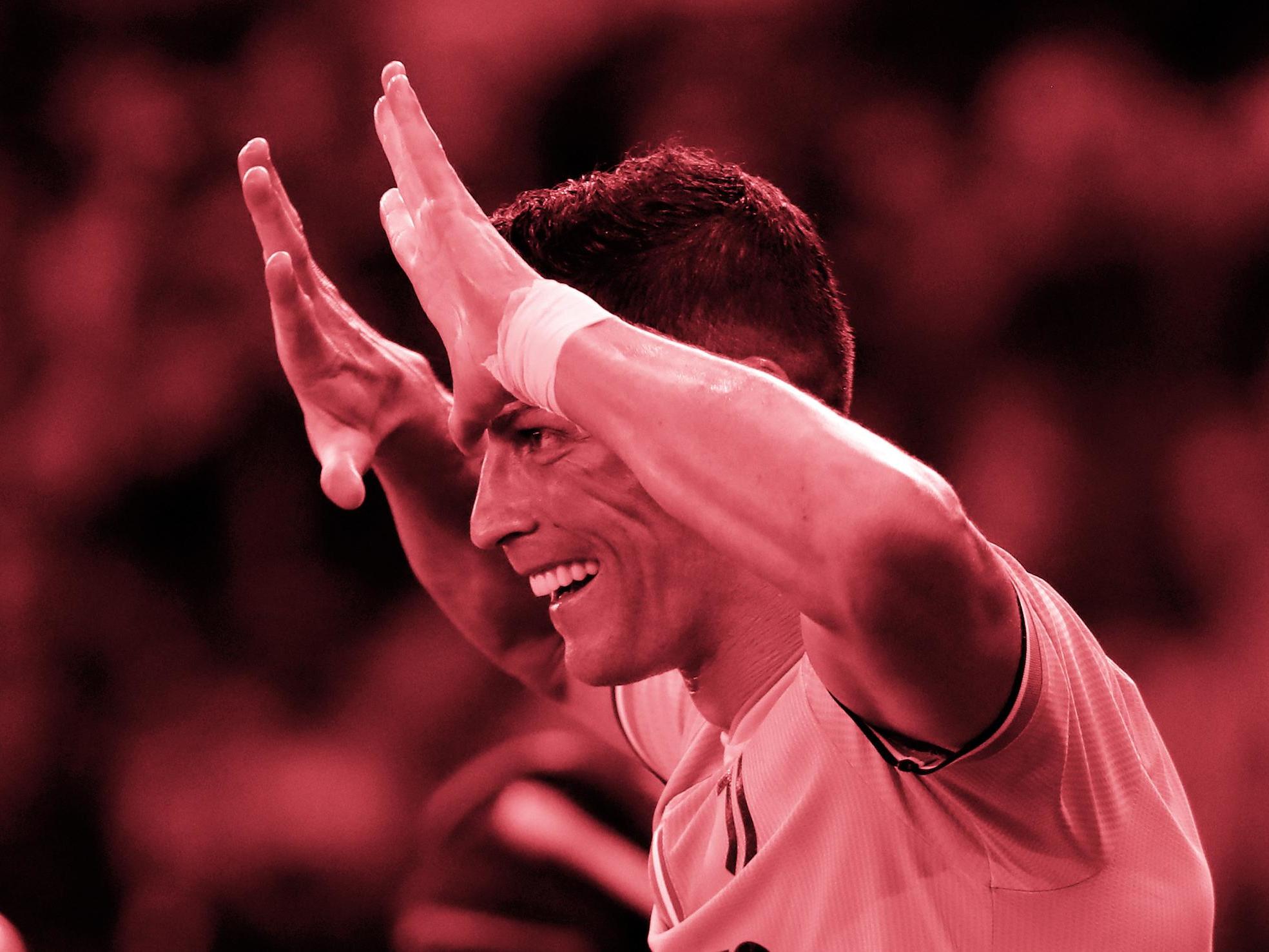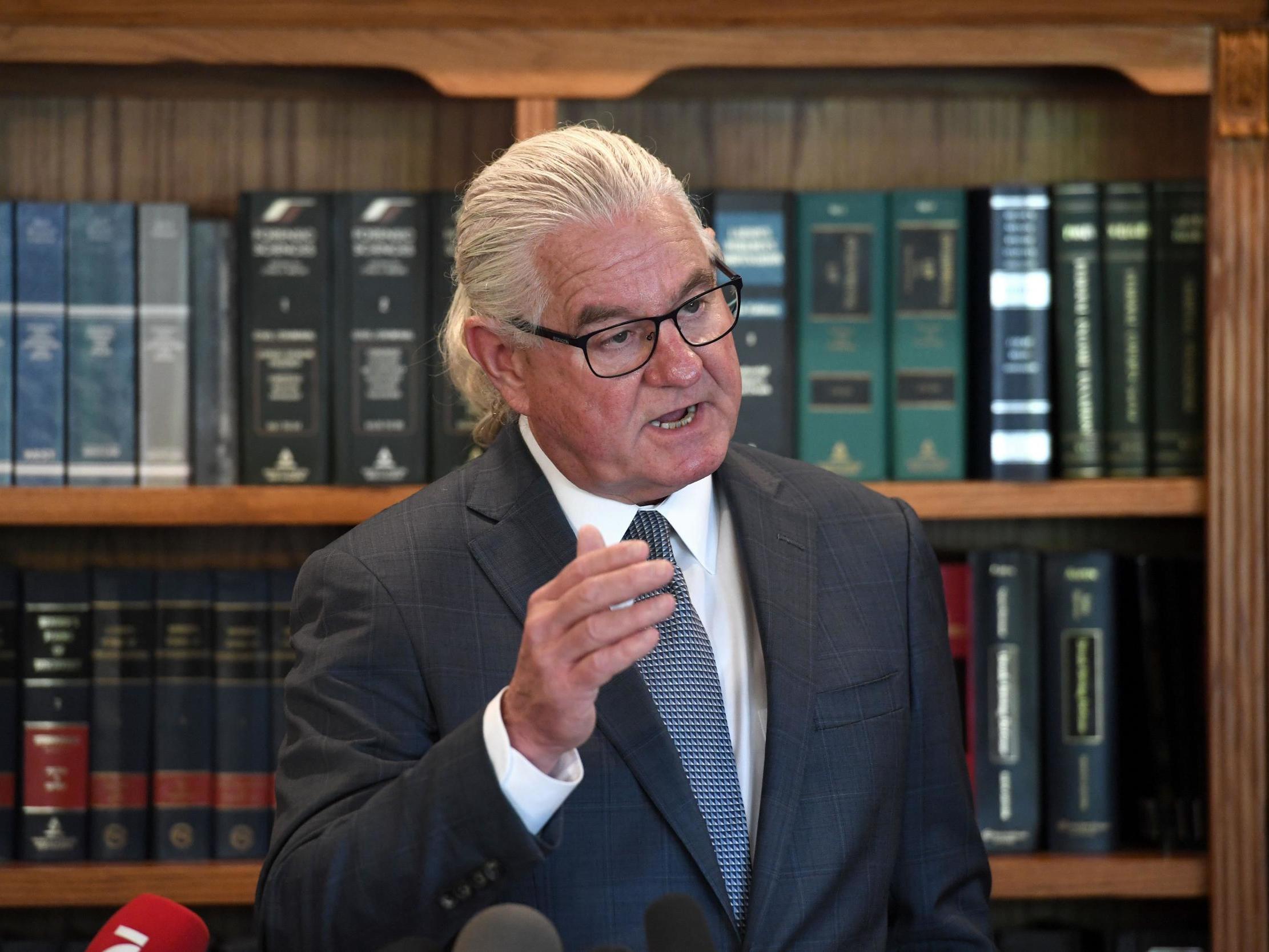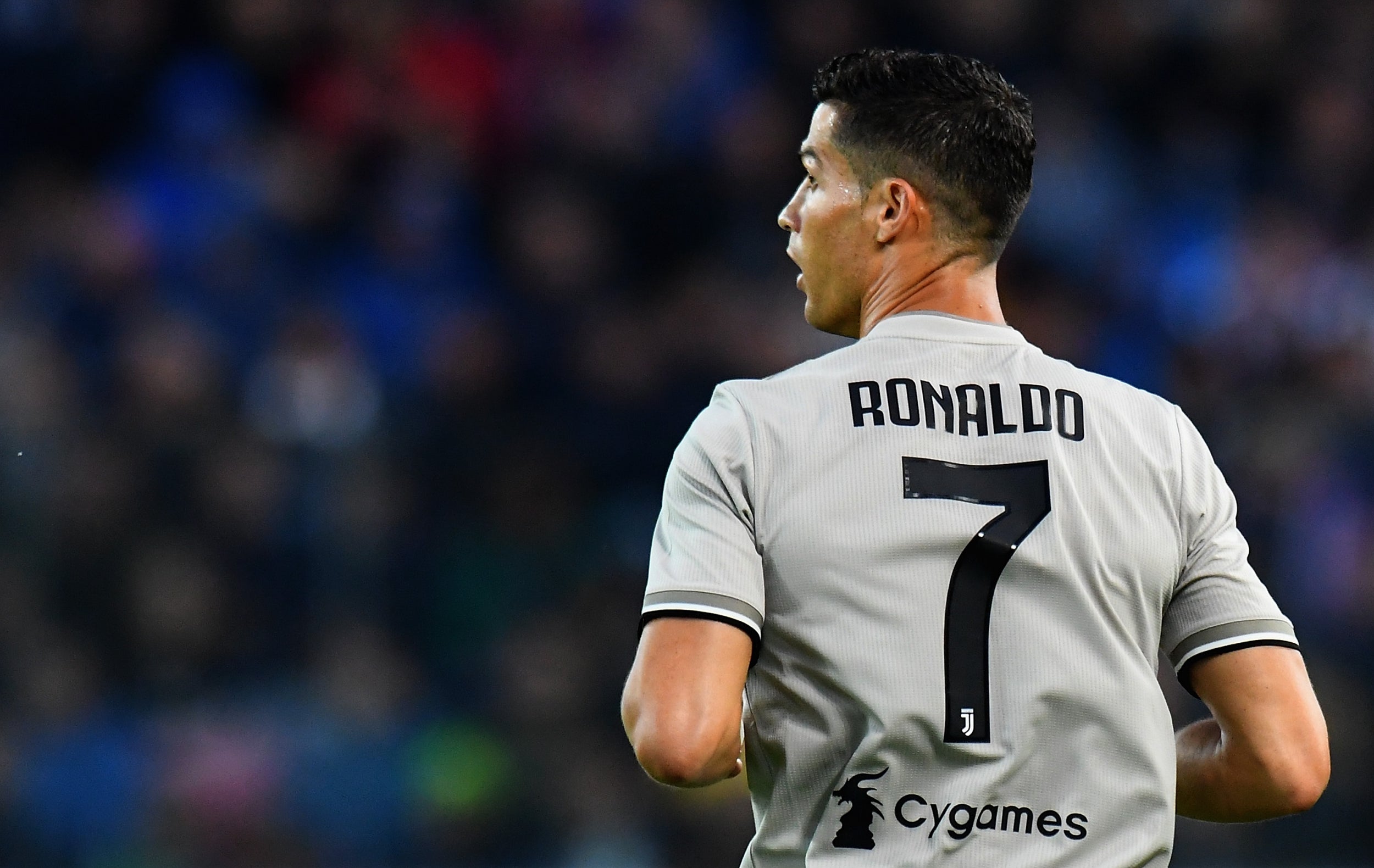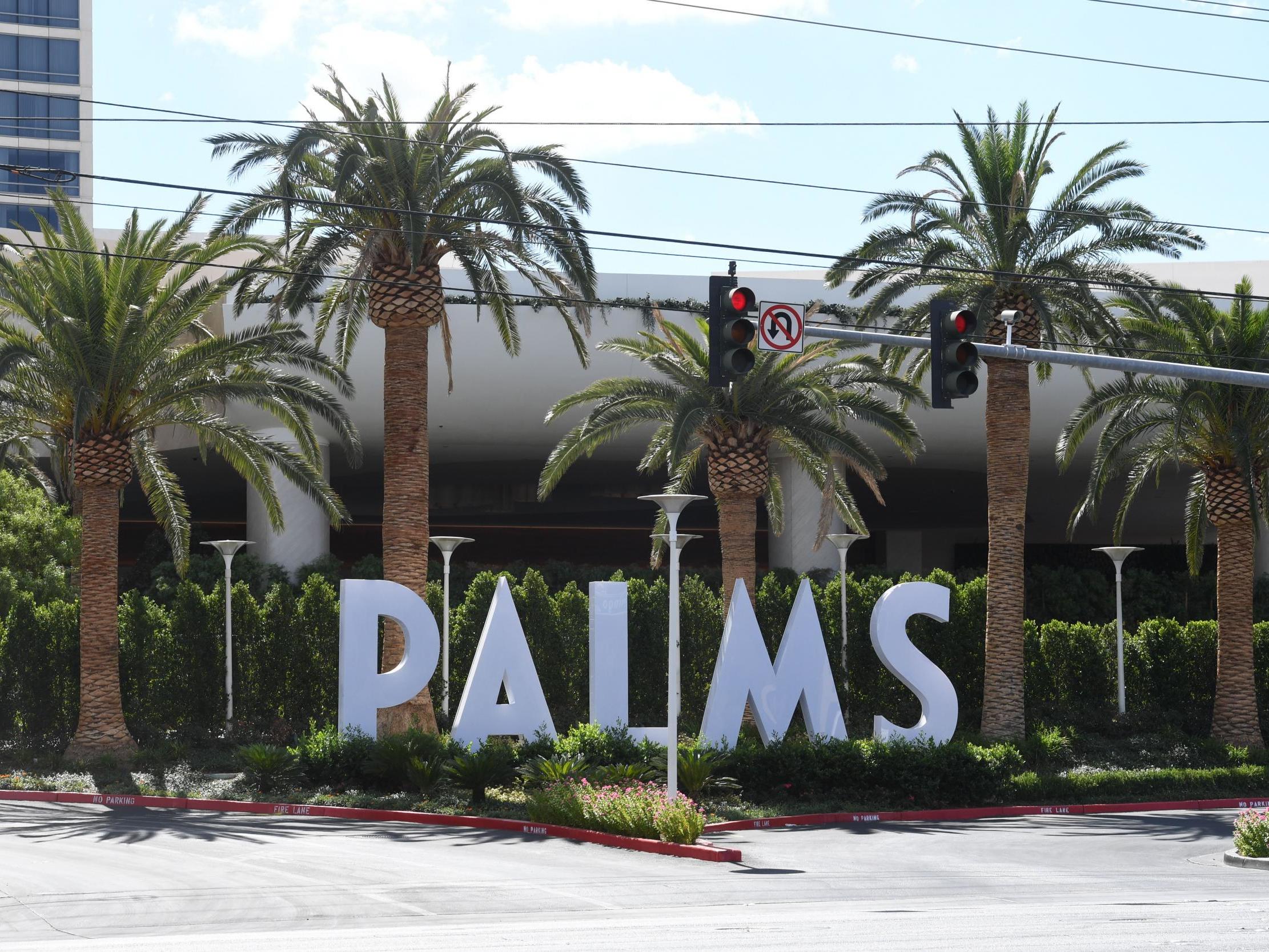Cristiano Ronaldo rape allegations: what we know, what we don’t and what comes next

Your support helps us to tell the story
From reproductive rights to climate change to Big Tech, The Independent is on the ground when the story is developing. Whether it's investigating the financials of Elon Musk's pro-Trump PAC or producing our latest documentary, 'The A Word', which shines a light on the American women fighting for reproductive rights, we know how important it is to parse out the facts from the messaging.
At such a critical moment in US history, we need reporters on the ground. Your donation allows us to keep sending journalists to speak to both sides of the story.
The Independent is trusted by Americans across the entire political spectrum. And unlike many other quality news outlets, we choose not to lock Americans out of our reporting and analysis with paywalls. We believe quality journalism should be available to everyone, paid for by those who can afford it.
Your support makes all the difference.It’s a story that has the potential to shake the sports world to its core: Cristiano Ronaldo – a five-time Ballon d’Or winner and one of the greatest footballers of our time – has been accused of rape.
The explosive allegation, made by Kathryn Mayorga, 34, threatens to engulf Ronaldo in a lengthy legal battle – the outcome of which, for now, remains uncertain.
Amid the numerous layers and threads that make up this case, the bottom line is clear: the Juventus and Portugal player is being sued by Mayorga, an American from Nevada, who claims he sexually assaulted her in a Las Vegas hotel in 2009 and then dispatched a team of “fixers” to obstruct the criminal investigation and manipulate her into keeping quiet for $375,000.
Ronaldo has denied the allegations, insisting his ‘conscience is clear’, but the case has already rocked the ground beneath the superstar’s feet. Nike, one of Ronaldo’s biggest sponsors, have said they are “deeply concerned” by the accusations while Juventus saw their shares drop sharply in the wake of the claims.
But what exactly do we know so far? What are we faced with? Where exactly will this case go? And what comes next for Ronaldo?
So, what do we know?
Kathryn Mayorga, 34, has accused Ronaldo of raping her in a penthouse suite at the Palms Casino Resort in June 2009 shortly after they met in a nightclub. At the time, the Portuguese had just completed his £80m move from Manchester United to Real Madrid, making him the most expensive player on the planet.
After keeping quiet for almost a decade, Mayorga has now gone public with her story and last month filed a lawsuit against the footballer.
Mayorga’s legal team is also seeking to void a 2010 non-disclosure agreement she signed as part of an out-of-court financial settlement with the player. In a press conference held earlier this month, it was revealed by Mayorga’s lawyers that, according to a psychiatrist’s medical opinion, her psychological injuries made her “incompetent” to legally agree to the settlement at the time.
The lawsuit adds that Mayorga was manipulated and put under pressure by Ronaldo’s “fixers” to agree to the 2010 settlement, which saw the American receive a $375,000 pay-off. Ronaldo’s lawyer acknowledged the existence of this settlement but said it was “by no means a confession of guilt”.
Police in Las Vegas have also said that they have reopened their investigation into the alleged assault from 2009.
Who is Kathryn Mayorga?
At the time of the incident, the American, then 25, was a budding model and, according to Der Spiegel, "one of her jobs was to hang out with other young, beautiful women in front of bars to lure in guests." She had been working before she met Ronaldo, and later went partying at the Rain nightclub where she first crossed paths with the footballer.
Until recently, Mayorga worked as a teacher at a primary school. But she quit, she says, "because I need all my strength now."
As of now, her location is not known and it's understood she has left Nevada to get away from the intense glare of the media spotlight.
Mayorga is being represented by Stovall & Associates, a legal firm based in Las Vegas.

What have Ronaldo and his lawyers said?
Taking to Twitter this month, Ronaldo said: “I firmly deny the accusations being issued against me. Rape is an abominable crime that goes against everything that I am and believe in.
“Keen as I may be to clear my name, I refuse to feed the media spectacle created by people seeking to promote themselves at my expense.
“My clear conscious [sic] will thereby allow me to await with tranquillity the results of any and all investigations.”
Ronaldo’s lawyer has also said that documents which appear to substantiate Mayorga’s claims of rape have been altered. “The documents that allegedly contain statements by Cristiano Ronaldo and were reproduced in the media are pure inventions,” Peter Christiansen said last week.
Christiansen adds: “What happened in 2009 in Las Vegas was completely consensual.”
What have Juventus said?
The Serie A side has strongly backed its player. In a statement released via Twitter, the club said: “Ronaldo has shown in recent months his great professionalism and dedication, which is appreciated by everyone at Juventus.
“The events allegedly dating back to almost 10 years ago do not change this opinion, which is shared by anyone who has come into contact with this great champion.”
Where do Ronaldo’s sponsors stand?
So far, none of the player’s partners and sponsors have cut ties with him – but this hasn't stopped them from expressing their concern at the allegations.
Save the Children, for whom Ronaldo has served as an ambassador since 2016, was the first to speak publicly about the accusations. The charity told The Independent: “We are disheartened by the news report we’ve seen and are working to get more information.”
Nike, too, said it is “deeply concerned by the disturbing allegations and will continue to closely monitor the situation” while gaming firm EA Sports, who feature Ronaldo heavily in their Fifa 19 video game, say they “expect cover athletes and ambassadors to conduct themselves in a manner that is consistent with EA’s values.”
At the beginning of February, the Portuguese was dropped as the cover star of Fifa 19, with Kevin De Bruyne, Neymar and Paulo Dybala sharing the spotlight in his place.
Uefa, meanwhile, told The Independent they are monitoring the situation surrounding the player.
DAZN, another of Ronaldo’s sponsors, said: “We take allegations of this nature extremely seriously and continue to monitor the situation closely.”
Haven’t we been here before?
To a certain extent, yes. In April 2017, Der Spiegel published a report entitled ‘Cristiano Ronaldo’s secret,’ which detailed an allegation of rape made against the footballer. Except, at the time, the publication did not name Kathryn Mayorga as the accuser.
Not yet ready to come forward with her story, and fearing the imposing power of brand Ronaldo, the American kept herself at a distance from the report. While the player continued to shine on the pitch – notably hitting a brace in the 2017 Champions League final – the accusation subsequently faded into the background.
It’s a different story this time round, though. Now, unlike with 2017, Mayorga has come forward, citing the emergence of the MeToo movement as one of the reasons for doing so. More than this, the 33-year-old’s attorney has filed a lawsuit against the Portuguese while police have reopened their 2009 investigation into the alleged sexual assault case. Given the depth to this story, and the legal dimensions it has adopted, there’s little chance of it drifting into irrelevance.
What comes next on the legal front?
In all likelihood, a long and drawn-out legal battle.
As it stands, Mayorga’s position is weakened by the non-disclosure agreement she signed in 2010. Under this – Ronaldo’s lawyers will claim – the American contractually relinquished her complaints against the footballer. If Mayorga’s lawsuit is to advance, she will first need to convince a Las Vegas court to invalidate the settlement.
“Settlements, however, are usually approved, absent a compelling reason to reject it,” Michael McCann, an associate dean at the University of New Hampshire School of Law and legal analyst for Sports Illustrated, told The Independent.
For numerous reasons, which can be explored in McCann’s legal assessment of this case, courts are usually reluctant to void a settlement. Indeed, if it was easy to do this, then parties involved in a legal battle would never agree to such a settlement in the first place.
Although Mayorga faces a major legal obstacle in this sense, a number of rationales that permit the nullification of the settlement have been invoked in her lawsuit, according to McCann.

“The first rationale Mayorga cites is her lack of capacity to enter into a binding contract,” he says. “The second rationale … is undue influence and duress” while the third “is her contention that Ronaldo fraudulently procured the settlement.”
Naturally, Ronaldo’s attorneys will contest each one of these ‘rationales’. They will argue that Mayorga was more than capable of understanding the terms of the agreement she signed in 2010 while insisting they were obliged to pursue strategies that benefited their client at the time.
Mayorga’s lawsuit also claims that she is excused from the settlement on account of Ronaldo himself breaching it. As part of the 2010 non-disclosure, it was agreed that the footballer would read a letter sent by Mayorga detailing her emotional and physical traumas in the wake of the alleged rape. Whether or not Ronaldo did read this letter has not been established – this is something for the court to decide.
In January 2019, the Wall Street Journal reported that the LVPD's investigators had issued a warrant for Ronaldo's DNA. Ronaldo's representatives and the Las Vegas Police Department have declined to comment on the story.
How long will this legal process take?
“In the coming weeks, attorneys for Ronaldo will answer the complaint and in doing so almost certainly deny the core allegations,” says McCann. “Thereafter the legal process will proceed and attorneys for Ronaldo will argue the case should be dismissed."
According to McCann, it can take months and even years to reach a decision on whether to uphold or void a settlement
If the settlement is nullified, Mayorga’s lawsuit will advance and the additional details of her account further scrutinised. This, too, would take months, with both sides required to share evidence and give testimony.
What about the police investigation?
According to McCann, the greatest worry for Ronaldo will be whether criminal charges of sexual assault are made against him by Las Vegas police. If this were to happen – and that’s a big ‘if’ – US authorities would demand the extradition of the footballer.
McCann believes the likelihood of him being charged for an incident that occurred in 2009 is low. Given the nine years that have passed since the alleged rape, witness recollections and evidence are unlikely to be as persuasive as they would have been in the immediate aftermath of the incident, McCann says. In addition to this, he explains, the fact police did not chase up Mayorga’s claims in 2009 suggest there may be elements to her account which don’t stand up and, as a result, would be knocked down in court.

Nonetheless, Ronaldo and his team will have cause for concern, according to McCann. That Las Vegas police feel justified in reopening a case from 2009 suggests they’re following up on Mayorga’s information and may now have access to new evidence. What could this be? At the moment, we don’t know. But given Der Spiegel claims to possess the damning documentation in which Ronaldo admits to raping Mayorga, there’s every chance the German publication has handed over this content to the relevant authorities.
Whether or not a court of law and police investigators will be able to use this apparent material – given the manner in which it was acquired by Der Spiegel, via Football Leaks, and its possible breach of attorney-client privilege – adds another complex layer to the case.
Where does Ronaldo fit into all of this?
“Ronaldo has leverage in terms of cooperation [with the police] because he cannot be compelled to appear in Las Vegas at this point,” McCann told The Independent. “If he cooperates he might only agree to do so by video conference and by answering questions in writing. He might also be willing to share electronic evidence.
“If he doesn’t cooperate, the police could take a negative inference from his lack of cooperation,” he adds. “That doesn’t mean he would be charged with a crime, but lack of cooperation can make law enforcement more suspicious about a person."